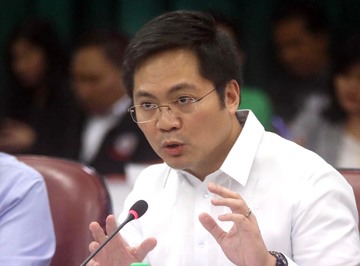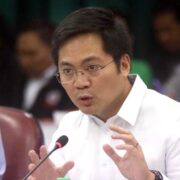
EASING travel restrictions into the Philippines amid the ongoing coronavirus pandemic should be done gradually, according to the Inter-Agency Task Force for the Management of Emerging Infectious Diseases (IATF).
IATF vice chairman and Cabinet Secretary Karlo Nograles on Saturday, October 24, said they are studying the possibility of allowing more foreigners to enter the Philippines again.
“I can’t predict when we will allow the entry of foreigners who belong to other categories. Basically, it’s a work in progress. It’s something that is being studied. We are looking at the numbers,” he said in an online forum.
“The point is we are opening (the country) but we don’t want to do it in haste,” he added.
“We appeal for some patience. It’s moving and we listen to all requests… It has to be calculated and very calibrated so our system would not be overwhelmed.”
Nograles also said that the government is calculating the carrying capacity of the country in anticipation of the holiday season.
“We are calculating the carrying capacity, how many are anticipated to come home, how many OFWs (overseas Filipino workers), all these are being studied to determine if we have the carrying capacity in anticipation of this coming Christmas season,” he said.
He added that the government is having discussions related to reciprocity in outbound travels.
“There are discussions on reciprocity. Some countries accept travelers from the Philippines. In a manner of reciprocity we may also be open to them. But the other question is whether that country has low or medium prevalence,” Nograles said.
On Oct. 22, the IATF allowed the entry of foreigners with investors’ visas starting November 1.
Under IATF Resolution No. 80, foreigners allowed to enter the country include:
• Those with visas issued by the Bureau of Immigration pursuant to EO No. 226 or the Omnibus Investments Code, as amended, and Republic Act No. 8756;
• Those with 47(a)(2) visas issued by the Department of Justice; and
• Those with visas issued by Aurora Pacific Economic Zone and Freeport Authority, and Subic Bay Metropolitan Authority.
“The entry of these foreign nationals to the country, however, is subject to conditions, such as they must have [a] valid and existing visa at the time of the entry and must likewise have a pre-booked accredited quarantine facility,” said presidential spokesman Harry Roque.
“In addition, they must be subject to the maximum capacity of inbound passengers at the port and date of entry and must follow applicable immigration laws, rules and regulations,” he added.
The IATF also lifted the ban on non-essential outbound travel, with Filipinos traveling abroad no longer required to present a negative result for an antigen test taken 24 hours before departing.






